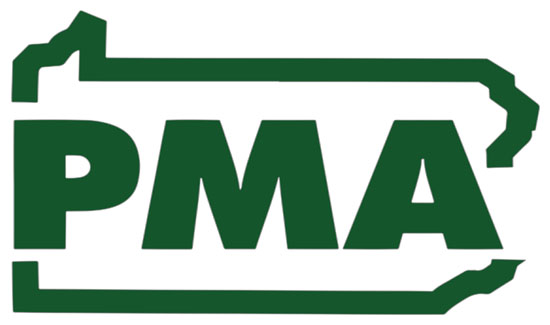Vote YES on May 18th!

Last week, Senate President Pro Tempore Jake Corman (R-Centre) rightly called the May 18 ballot questions limiting the governor’s engineered authority to endlessly extend emergency declarations among the most consequential for Pennsylvania voters in his 23 years in office. A “Yes” vote, Corman said, will restore the checks and balances in government as envisioned by the founders, give the General Assembly a seat at the table in extended emergencies, and protect Pennsylvanians from autocratic decisions of future governors.
“Since March 1, 2020, one individual has been in control of our businesses, our schools, our health care,” Corman said at a new conference held by Senate Republican Leadership at the Capitol. “As an equal branch of government, we had to deal with the fall out from our constituents without ever having a say in the process.”
Abetted by a rubber-stamp state Supreme Court, the struggle over the power the governor seized and never relinquished is much more than partisan bickering between a Republican controlled legislature and a Democratic governor. It is at its core of fight for the right to assemble, to work, to worship – basic rights all Americans were afforded in the U.S. Constitution.
“Decisions on the direction of the commonwealth during the pandemic have been made by one person with no input from the stakeholders, with no input from lawmakers, and with no transparency,” said PMA President & CEO David N. Taylor. “From disastrous shutdown orders to a black-box waiver process, people’s lives and livelihoods have been trampled by an Imperial Governor who has hidden both his reasoning and himself from the public. Only by voting YES on the constitutional questions can Pennsylvanians restore balance and accountability to decision-making during emergencies.”
Input from lawmakers would have almost certainly improved outcomes in the fight against the virus. In February 2021, the governor, with a new Secretary of Health on board, reached out to the legislature to create a joint task force to improve vaccine distribution. Pennsylvania quickly went from almost dead last to the top of the list of states in distribution effectiveness.
Senate Majority Leader Kim Ward (R-Westmoreland) said legislative input was also needed on a whole host of issues including which businesses to close, and rules affecting nursing homes – a Department of Health mandate forced them to take-in residents infected with the virus.
“On a conference call in December with the governor’s office, we asked what data they had in their decision to close restaurants,” Kim said. “All they had were some articles from other states. They had no data.”
In response, lawmakers moved to give the voters a say by approving, in consecutive legislative sessions, the amendments now on the ballot. Contrary to the spin from the governor’s office (and the deliberately deceptive wording for the amendment questions crafted by the Wolf Department of State), the questions do not strip him of his emergency declaration powers or jeopardize government benefits.
One amendment would require legislative approval for the extension of a disaster declaration beyond 21 days. Currently, a governor can issue a 90-day emergency disaster declaration and renew it an unlimited number of times without legislative input.
A second proposed amendment empowers the General Assembly to terminate a governor’s disaster declaration with a majority vote in both chambers.
“Because of a recent state Supreme Court ruling, it is easier for the Legislature to remove a sitting governor than for the Legislature to terminate a governor’s disaster declaration, regardless of how many times that declaration has been renewed or how many months or years it has been in place,” the Commonwealth Partners Chamber of Entrepreneurs said in a statement supporting the amendments.
Two additional proposed amendments on the ballot make an across-the-board “Yes” vote a clear choice: one would add race and ethnicity as categories for non-discrimination in our constitution; a fourth would help make municipal fire and emergency medical services companies eligible for loans.
Last year, the General Assembly sent the governor multiple measures detailing courses of action for the opening of businesses and establishing best practices to battle the virus. He rejected all of them. In September, the U.S. District Court for the Western District of Pennsylvania found the Governor’s determination of what businesses were life-sustaining and which were not was arbitrary and violated the Due Process and Equal Protection Clauses of the Fourteenth Amendment. And, the court said, limits placed on gatherings violated the First Amendment rights to assembly and free speech.
The governor’s only absolution for his constitutional violations would be stellar outcomes from the measures he took to protect the public, and the state’s economy, from the ravages of the virus. But he failed there as well.
Among the states, Pennsylvania has one of the highest Covid death rates (201 per hundred thousand), and at 7.3 percent, one of the highest unemployment rates. Florida, by comparison, has a Covid death rate of 160 per hundred thousand, and an unemployment rate of 4.7 percent. Florida Governor Ron DeSantis opened the state months ago.
Visit https://www.voteyespa.com/ for information on the ballot questions and to find your polling place.




